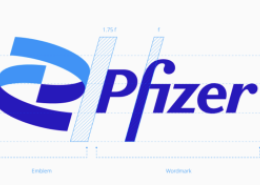Geodon Proven Effective as Adjunctive Maintenance Treatment of Bipolar Disorder
Geodon shown to be significantly more effective than placebo for long-term symptom control in patients with bipolar disorder
(BUSINESS WIRE)--Pfizer's Geodon (ziprasidone HCl) was an effective and generally well-tolerated adjunctive treatment to mood stabilizers for the maintenance treatment of bipolar disorder, according to a new study presented earlier this week at the European Psychiatric Association's European Congress of Psychiatry. Ziprasidone is available in Europe and other markets under the trade name Zeldox.
“Patients with bipolar disorder taking a mood stabilizer often have breakthrough mood episodes," said study author Eduard Vieta, M.D., Ph.D., Professor of Psychiatry, University of Barcelona, Spain. "These results demonstrate that ziprasidone was an effective adjunctive treatment for bipolar disorder over the long-term."
Bipolar disorder is a serious psychiatric disorder estimated to affect nearly 6 million Americans and nearly 30 million people worldwide. Pfizer filed an application with the U.S. Food and Drug Administration (FDA) for an adjunctive bipolar maintenance indication for Geodon based on the results of this study.
The study, presented at EPA January 25, demonstrated the efficacy and safety profile of Geodon over the long-term, having met the primary endpoint of time to intervention for a mood episode. Over the course of six months of treatment, significantly fewer patients (19.7 percent) taking Geodon plus a mood stabilizer (lithium or valproic acid) required intervention for a mood episode, compared to patients taking placebo plus a mood stabilizer (32.4 percent).
Geodon was generally well-tolerated with fewer patients in the Geodon group (12.6 percent) discontinuing due to adverse events compared to the placebo group (14.3 percent).
About the Study
This was a six-month, randomized, placebo-controlled, double-blind trial of Geodon plus a mood stabilizer in patients with bipolar disorder. The trial consisted of two phases: an open-label stabilization period of 2.5 months to four months, followed by a six-month, double-blind maintenance period. In the stabilization period, patients were given open-label Geodon (80-160 mg daily, dosed with food), in addition to lithium (0.6 - 1.2 mEq/L) or valproic acid (50-125 μg/ml) after the mood stabilizer had been maintained at therapeutic serum concentration for at least two weeks. Patients who achieved stability for eight consecutive weeks on this regimen were randomized into the second phase where they either continued receiving Geodon plus a mood stabilizer or were transitioned to placebo plus a mood stabilizer in order to evaluate efficacy and safety for an additional six months.
A total of 586 patients diagnosed with an acute manic or mixed episode of bipolar disorder entered the open-label stabilization period. Of those randomized into the double-blind period, 127 patients received Geodon and 112 patients received placebo.
Among treatment-emergent adverse events occurring in the six-month double-blind maintenance treatment phase, tremor was the only event occurring more frequently in the Geodon group (6.3 percent) than in the placebo group (3.6 percent). Adverse events occurring in more than 10 percent of patients in the open-label phase included sedation, somnolence, tremor, and insomnia.
About Geodon
Geodon is an atypical antipsychotic indicated in the United States for the management of symptoms of schizophrenia and acute manic and mixed episodes associated with bipolar disorder, with or without psychotic features. In the EU, Zeldox is indicated for the treatment of schizophrenia and is indicated for the treatment of manic or mixed episodes of moderate severity in bipolar disorder. With more than seven years of experience, ziprasidone is available in 77 countries. It is widely accepted on hospital, Medicaid, national Veterans Administration and managed-care formularies.
Elderly patients with dementia-related psychosis treated with antipsychotic drugs are at an increased risk of death compared to placebo. Ziprasidone is not approved for the treatment of elderly patients with dementia-related psychosis.
Ziprasidone is contraindicated in patients with a known history of QT prolongation, recent acute myocardial infarction, or uncompensated heart failure, and should not be used with other QT-prolonging drugs. Ziprasidone has a greater capacity to prolong the QTc interval than several antipsychotics. In some drugs, QT prolongation has been associated with torsade de pointes, a potentially fatal arrhythmia. In many cases this would lead to the conclusion that other drugs should be tried first.
As with all antipsychotic medications, a rare and potentially fatal condition known as neuroleptic malignant syndrome has been reported with ziprasidone. Neuroleptic malignant syndrome can cause hyperprexia, muscle rigidity, diaphoresis, tachycardia, irregular pulse or blood pressure, cardiac dysrhythmia, and altered mental status. If signs and symptoms appear, immediate discontinuation, treatment, and monitoring are recommended.
Prescribing should be consistent with the need to minimize tardive dyskinesia, a potentially irreversible dose-and duration-dependent syndrome. If signs and symptoms appear, discontinuation should be considered since tardive dyskinesia may remit partially or completely.
Hyperglycemia-related adverse events, sometimes serious, have been reported in patients treated with atypical antipsychotics. There have been few reports of hyperglycemia or diabetes in patients treated with ziprasidone, and it is not known if ziprasidone is associated with these events. Patients treated with an atypical antipsychotic should be monitored for symptoms of hyperglycemia.
Precautions include the risk of rash, orthostatic hypotension, and seizures.
In short-term schizophrenia trials, the most commonly observed adverse events associated with ziprasidone at an incidence of more than 5 percent and at least twice the rate of placebo were somnolence and respiratory tract infection.
The most common adverse events associated with ziprasidone in bipolar mania were somnolence, extrapyramidal symptoms, dizziness, akathisia, and abnormal vision.
Please see full prescribing information available at Geodon.com.
DISCLOSURE NOTICE: The information contained in this release is as of January 30, 2009. Pfizer assumes no obligation to update forward-looking statements contained in this release as the result of new information or future events or developments.
This release contains forward-looking information that involves substantial risks and uncertainties regarding a potential additional indication for Geodon that is under review by the Food and Drug Administration (FDA). Such risks and uncertainties include, among other things, whether and when the FDA will approve supplemental new drug application for this additional indication and its decisions regarding labeling and other matters that could affect its availability or commercial potential, as well as competitive developments.
A further list and description of risks and uncertainties can be found in Pfizer’s Annual Report on Form 10-K for the fiscal year ended December 31, 2007 and in its reports on Form 10-Q and Form 8-K.
Pfizer Inc
Media:
Jack Cox, 212-733-5017
or
Investors:
Jennifer Davis, 212-733-0717








